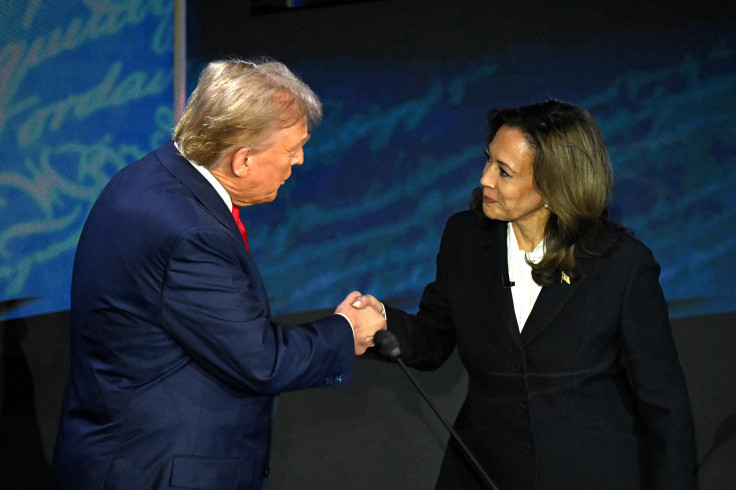
More than a week has passed since Vice President Kamala Harris and former President Donald Trump met for the first presidential debate since President Joe Biden ended his reelection bid. But while voters overwhelmingly thought Harris performed better during the event, the national race remains deadlocked.
That is the conclusion of the latest poll by The New York Times/Siena College, which showed that the race for the White House remains tied at the national level, with both candidates standing at 47%.
The poll was conducted among 2,437 likely voters from Sept, 11 to 16, days following the debate. Interviews were conducted in both English and Spanish, and the survey's margin of error is plus or minus 3 percentage points.
When examining the debate, Harris received far stronger reviews of her performance, with 67% of U.S. likely voters saying she did well compared with 40% who said the same for Trump. In fact, her positive reviews span different demographics, with most notably white voters without a college degree— a typical loyal fan base for Trump— giving her a positive review.
But even her strong strategies were not enough to create a gap between the two, despite the debate being described as one of the most consequential events of the cycle.
However, in Pennsylvania, where the debate was held and one of the key battleground states to win, Harris emerged with a lead, currently standing at 50% to Trump's 46%, a figure The New York Times described as "surprising," as it has been among the most contested states since 2016 and has generally trended more Republican than the nation has overall.
But while she showed an advantage during the event, it also seems that Harris was not able to solve some of her strongest vulnerabilities, with a share of voters still saying they want to learn more about the Vice President.
"I wanted to see how she would answer questions at the debate, but I feel like she didn't really answer any of the questions; she kind of just deflected," said Tyler Slabaugh, 24, who works in medical sales and likes in Grand Haven, Michigan, another key battleground state. He didn't vote in 2020 but plans on supporting Trump this year. "I didn't really get a good understanding of, like, what her plan was."
Trump also ran into his own issues, particularly among the college-educated white voters in the suburbs. His support among that group sunk to 36% both nationally and in Pennsylvania. In 2020, he won 42% of this group, The Times reports.
"He continues to just fly off the rails and ramble, which, again, is not something that I look for in the leader of the free world," said Paul Irwin-Dudek, 47, a nonprofit executive in Nutley, N.J., who is supporting Harris. "She was able to command the room," he said of the debate.
Other polls show a similar story, a close race with Harris holding a slight advantage.
For instance, FiveThirtyEight averages Harris with a lead of 2.8 percentage points, at 48% to the former President's 45%. Similarly, in an average of 196 polls, The Hill shows Harris with a 3.6 percentage point lead, at 49% to Trump's 46%.
© 2025 Latin Times. All rights reserved. Do not reproduce without permission.






